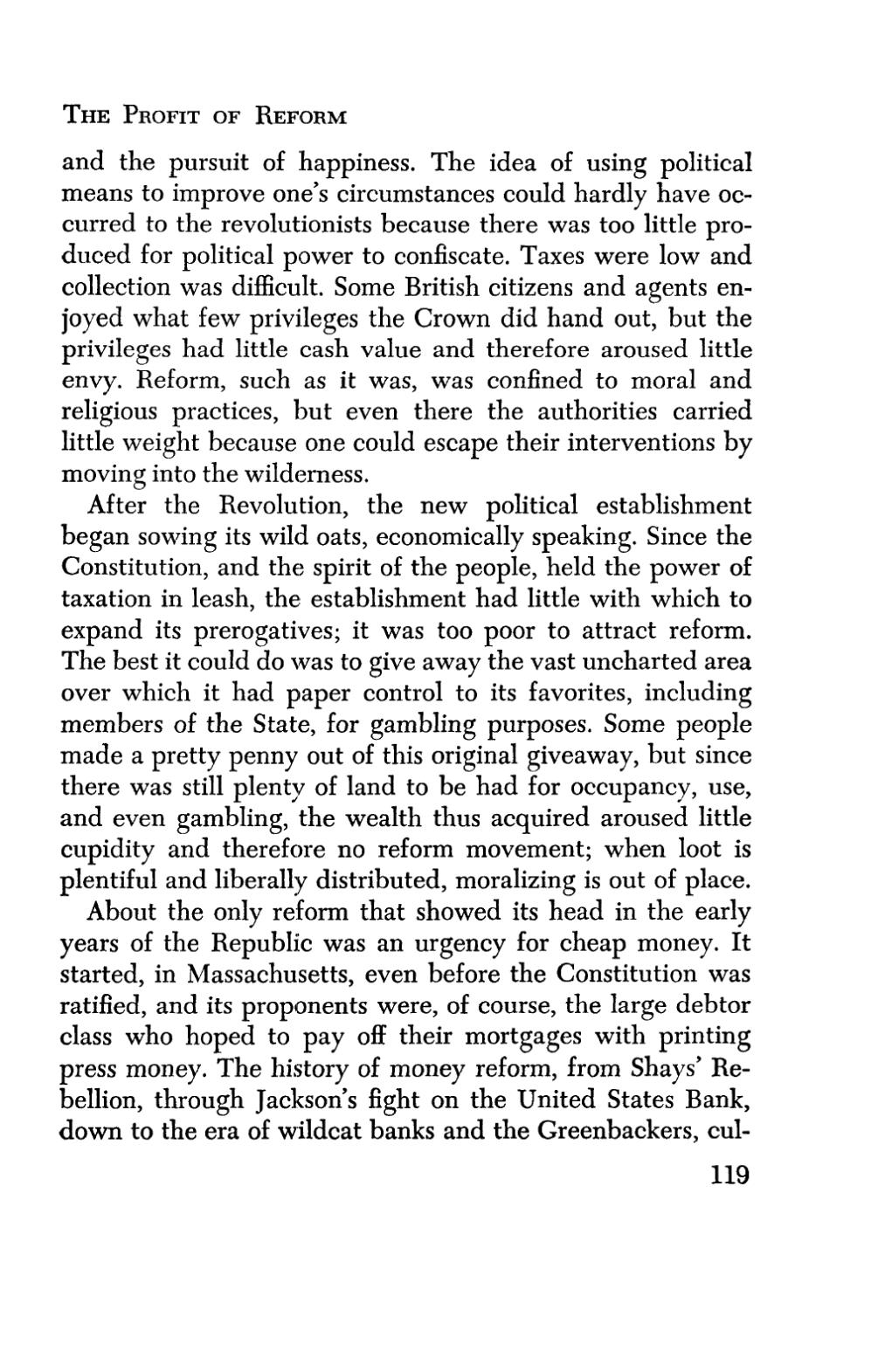The Profit of Reform
and the pursuit of happiness. The idea of using political means to improve one's circumstances could hardly have occurred to the revolutionists because there was too little produced for political power to confiscate. Taxes were low and collection was difficult. Some British citizens and agents enjoyed what few privileges the Crown did hand out, but the privileges had little cash value and therefore aroused little envy. Reform, such as it was, was confined to moral and religious practices, but even there the authorities carried little weight because one could escape their interventions by moving into the wilderness.
After the Revolution, the new political establishment began sowing its wild oats, economically speaking. Since the Constitution, and the spirit of the people, held the power of taxation in leash, the establishment had little with which to expand its prerogatives; it was too poor to attract reform. The best it could do was to give away the vast uncharted area over which it had paper control to its favorites, including members of the State, for gambling purposes. Some people made a pretty penny out of this original giveaway, but since there was still plenty of land to be had for occupancy, use, and even gambling, the wealth thus acquired aroused little cupidity and therefore no reform movement; when loot is plentiful and liberally distributed, moralizing is out of place.
About the only reform that showed its head in the early years of the Republic was an urgency for cheap money. It started, in Massachusetts, even before the Constitution was ratified, and its proponents were, of course, the large debtor class who hoped to pay off their mortgages with printing press money. The history of money reform, from Shays' Rebellion, through Jackson's fight on the United States Bank, down to the era of wildcat banks and the Greenbackers, cul-
